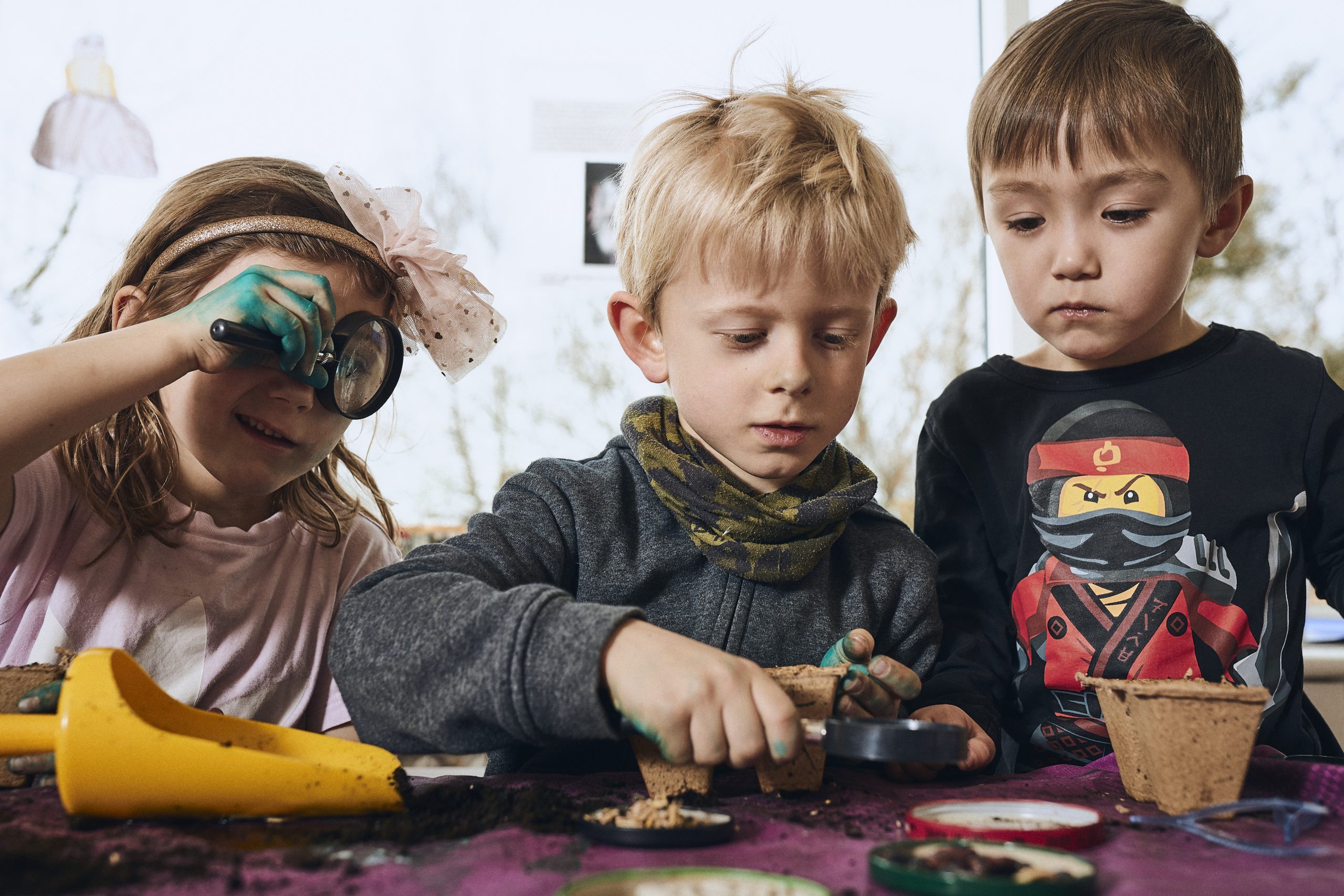Young children can start their day with a podcast about science when Radionauterne answer questions from children as young as 4 years. Upper-secondary school students can control a telescope in Australia remotely and study the night sky while the sun shines in Denmark. And young and old can meet for science & cocktails and hear about the latest developments in scientific research from the researchers themselves.
These three projects and 11 others have received grants from the Novo Nordisk Foundation for science education and outreach in the funding round this spring. This is the second time the Foundation has awarded grants in open competition in this field based on many high-quality applications.
“At the Novo Nordisk Foundation, we are proud to support science learning and experiences in school and leisure time. The projects help to equip children and young people to navigate society at a time of rapid technological development. These are ambitious and exciting projects that are now being launched,” says Berith Bjørnholm, Senior Programme Manager, Education & Outreach, Novo Nordisk Foundation.
Promoting high-quality learning and great experiences
All the projects focus on supporting children and young people in learning about science and motivating them to acquire knowledge and scientific skills.
In childcare centres and during the first years of school, children can have positive experiences with science by playing and exploring. Learning in primary and lower-secondary schools and in upper-secondary schools is strengthened by innovative teaching methods, upgrading the skills of science teachers and offering special programmes for talented students.
Applications for science projects from all over
Geographically, the projects range from Venø in the Limfjord to Kangerluk in Greenland. They cover childcare centres, primary and lower-secondary schools, upper-secondary schools and leisure time with family and friends.
The Foundation will launch the next application round for grants for natural science and outreach projects in summer 2019. The Foundation’s website will have further information on the summer application round in due course.
Spring 2019 recipients of project grants for natural science education and outreach
Biotech Academy Teaching Projects
Department of Biotechnology and Biomedicine, Technical University of Denmark, 3 years, DKK 2,460,536
Science camps and an online platform with teaching aids and virtual laboratories on biotechnology for primary and lower-secondary schools and upper-secondary schools.
Models and Modelling in Natural Science
University College Absalon, 2 years, DKK 902,294
Upgrading skills in the use of models in the education of science teachers in Region Zealand.
Klimahuset
Kelstrup Naturskole, 1 year, DKK 157,500
A greenhouse in the Municipality of Aabenraa for teaching about climate, insects and food production for primary and lower-secondary students.
Naturcenteret i børnehaven
Nature Center Amager Strand, 2 years, DKK 1,792,400
A nature centre in Amager packs gear onto cargo bikes and brings nature activities to children and early-childhood educators in childcare centres in Nørrebro, Copenhagen.
Using Computational Thinking on Biological Systems in Upper-secondary school Teaching
Aalborghus Gymnasium, 3 years, DKK 1,560,892
Developing teaching in bioinformatics, coding and mathematics for biology, biotechnology and mathematics subjects in upper-secondary schools.
Radionauterne
Radionauterne, 3 years, DKK 2,890,000
Science podcast in which researchers answer questions from children 4–10 years old.
Kangerluk – Climate Change and Ecosystems in Greenland
Greenland Institute of Natural Resources, 2 years, DKK 2,618,500
Science teaching material for Greenlandic and Danish primary and lower-secondary schools on the impact of climate change on the Greenland ice sheet and nature in the Arctic.
Tenth Grade with a Focus on Engineering
Venø Efterskole, 4 years, DKK 240,000
Project-oriented science for 10th grade students based on solving problems using engineering principles.
Play. Passion. Purpose
Grenaa Gymnasium, 3 years, DKK 1,289,603
Mini-Experimentarium for restructuring science learning in upper-secondary school with playing as a key principle.
Science & Cocktails
Science & Cocktails Foundation, 3 years, DKK 2,998,782
Volunteers organize popular lectures and events that integrate science, music, art, humour and cocktails for a young audience.
Technology Talent Space
HOFOR – Greater Copenhagen Utility, 1 year, DKK 485,000
Pilot project for building four laboratories at which selected talented students from primary and lower-secondary schools and upper-secondary schools can meet socially and work with real-world engineering projects.
Children Communicate about Nature
Municipality of Fredensborg, 4 years, DKK 1,863,000
Children in the Municipality’s childcare centres learn to describe their activities involving the outdoors and science and then communicate their experiences to their parents and siblings.
The NBI Ungdomslaboratoriet: Real Labs for Young Scientists
Niels Bohr Institute, University of Copenhagen, 3 years DKK 2,743,637
Laboratory facilities at the University of Copenhagen that 9th-grade students and upper-secondary students can visit. Upper-secondary schools can also request a visit from the Ungdomslaboratoriet’s Road Show.
Teaching Telescope in Australia
Department of Physics and Astronomy, Aarhus University, 4 years, DKK 2,997,856
Teaching telescope in Australia for use by upper-secondary students in Denmark.
Further information
Christian Mostrup Scheel, Senior Press Officer, phone: +45 3067 4805, [email protected]








